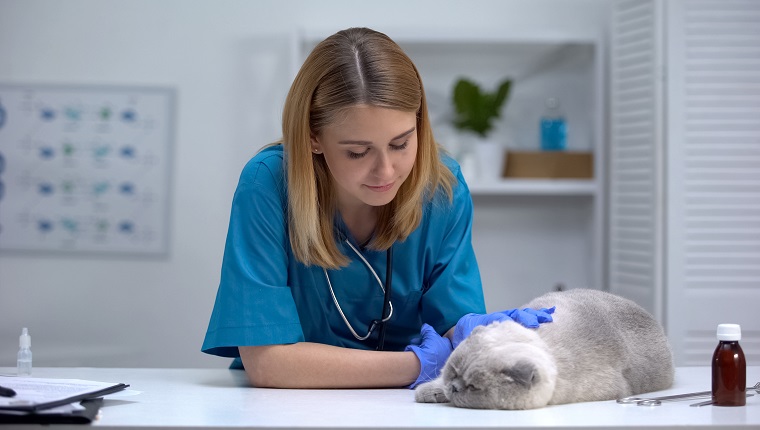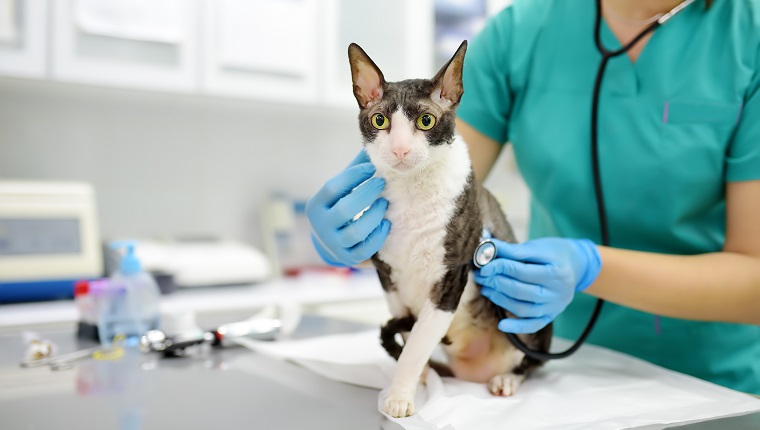Carcinoid cancer in cats is a medical condition where tumors are formed by the endocrine cells. These tumors usually form in the cat’s gastrointestinal tract.
This type of cancer in cats is a comparatively rare condition; although it affects cats who are seven years old and above much more frequently than younger cats and kittens.
If you see signs that your cat might be developing cancer of any kind, then you must consult your veterinarian for a proper diagnosis and course of treatment. Here’s what you should know about the symptoms, causes, and treatments of carcinoid cancer in cats.
Symptoms Of Carcinoid Cancer In Cats
Carcinoid cancer in cats can result in a range of symptoms. Some of the most frequent symptoms include:
- Vomiting
- Heart disease
- Breathing difficulties
- Seeming to be depressed
- Dyschezia (painful defecating)
- Constipation
- Losing weight (and anorexia)
Causes Of Carcinoid Cancer In Cats

Unfortunately, the exact cause of carcinoid cancer in cats has not yet been determined. However, older cats seem to have the highest likelihood of developing the condition, with cats aged seven and above at the highest risk.
To date, this cancer does not seem to affect any specific cat breeds more than others.
Veterinary Treatments
Diagnosing carcinoid cancer in cats can be a difficult process. In general, the usual blood and urine tests that a veterinarian might order will often produce a series of normal results.
In some cases, vets can use ultrasound imaging as a way to form a diagnosis; although, vets generally rely on taking a biopsy of any affected tissue as the most accurate method of confirming a case.
When it comes to treatment, vets usually recommend the surgical removal of any tumors.
If your kitty undergoes a surgery to remove any tumors, it is vital that you keep up regular vet visits after. This is so that the vet can properly monitor the state of the condition and your cat’s health.
Has your cat developed carcinoid cancer? What steps is your vet taking to help your cat recover? Tell us all about it in the comments below.









